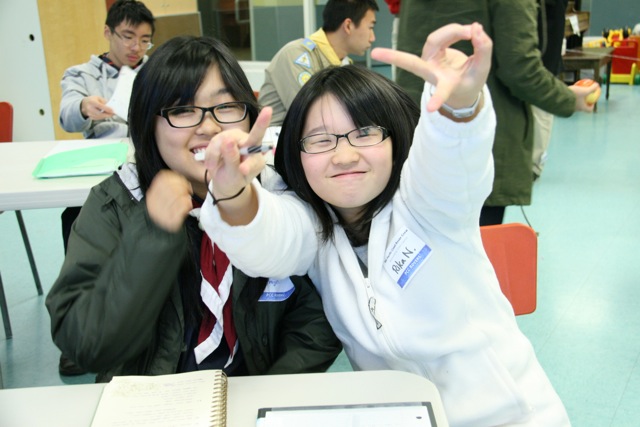By: Aaron D’Souza
Students are faced with innumerable distractions nowadays. The attention span of people in general seems to be getting shorter with the stimulation of senses that comes from having the internet at our fingertips. Focusing on doing one thing at a time has become a great challenge, and especially to students who want to do well academically while maintaining a balanced life outside the classroom.


To provide solutions to this challenge that students face, the 180th Pacific Coast Scout Group delivered a workshop on Nov.6, 2011, covering the topics of effective note-taking and tips for success in academics titled “Making the Grade”.
“Making the Grade” was attended by 10 high school students, 5 University students, and 4 University graduates. It was facilitated by Crew alumni, Clarice Fu, who has a Master’s of Science from UBC and won the Governor General’s Gold medal for the best Master’s student of 2010 in the university. Clarice is a great role-model and was well-suited to deliver a workshop on strategies to become a successful student.


The workshop was divided into three main sessions: 1) effective note-taking skills, 2) study smarts, and 3) general tips for success in school. There were multiple opportunities for the participants to break into small facilitated groups to practice their new skills.Educational institutions usually do not ensure that students receive proper training in effective learning strategies. Most are left to figure out these things on their own, which often results in not being able to master effective learning strategies early on. One very important learning activity is taking effective notes, and the first session of the workshop made it clear that for taking such notes, one must:
- Listen attentively for points that are emphasised time and again. Do not write every word that the prof. says, it is not an effective strategy
- Use different colours in your notes to organize information
- Use headlines, boxes, and other visuals to remember what’s important
- Review notes within 24 hours. Mainly to refresh your memory and fill in gaps
- Know that your notes are your main source of information. Text-books, although more comprehensive, should be used to gain additional knowledge


The next section of the workshop was on “Study smarts”. The main tips in this section were:
- Set a realistic study schedule. Of course, ‘realistic’ has to be defined by the individual. Are you an early bird or a night owl? When are your energy levels the highest? Schedule study periods when you know that you will not be interrupted. Do your most important tasks first and others later. Keep tweaking until you find a schedule that fits your daily routine.
- Get into flow. Psychologists have shown that the best work is done when people’s brains are in a state of ‘flow’. It is a state when they become one with the task at hand. All attention is focused on what is happening in the moment. Mental meanderings cease to consume working memory and one is completely focused on the task at hand. Get in the habit of deliberately entering this graceful state and you will find that your ability to tackle challenges increases.
We hope that all participants took home some useful tips to become better students!
